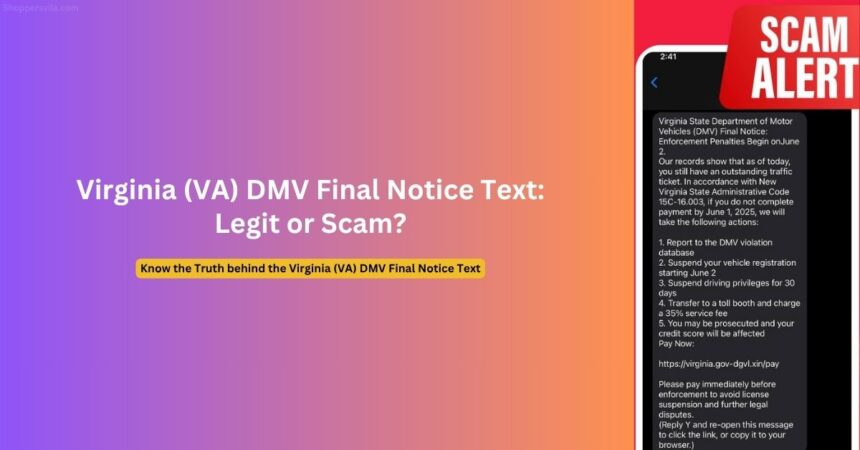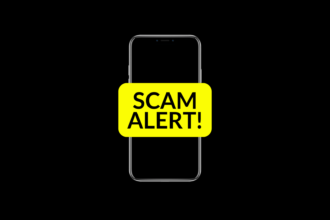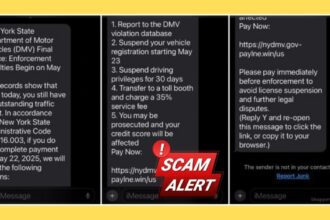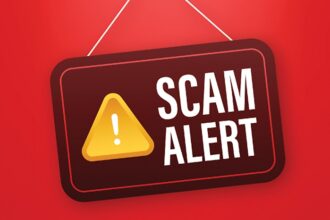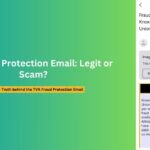A dangerous text messaging scam is spreading across Virginia, with fraudsters impersonating the Virginia Department of Motor Vehicles to steal personal information and money from unsuspecting drivers. These sophisticated “SMiShing” attacks have prompted urgent warnings from the Virginia Beach Sheriff’s Office and the official Virginia DMV, as thousands of residents report receiving threatening messages about fake traffic violations.
The scam represents part of a coordinated nationwide campaign that has already targeted drivers in New Jersey, Pennsylvania, New York, Illinois, and other states. By understanding how these criminals operate and recognizing the warning signs, Virginia residents can protect themselves from becoming victims of this growing cyber threat.
Overview of the Virginia DMV (VA) Final Notice Text Scam
The current wave of fraudulent DMV texts represents a sophisticated cybercriminal operation designed to exploit Virginia drivers’ concerns about potential legal consequences. These SMS phishing attacks, known as “SMiShing,” combine social engineering tactics with technology to create convincing but fake government communications.
Current Threat Level:
- Widespread reports across Virginia since late May 2025
- Thousands of residents targeted with identical messaging
- Official warnings issued by Virginia Beach Sheriff’s Office
- Virginia DMV actively alerting citizens via social media
- Part of multi-state criminal campaign affecting millions
The scam’s effectiveness lies in its psychological manipulation, creating false urgency about serious consequences like license suspension and legal prosecution. Scammers deliberately target people’s natural anxiety about government enforcement actions, hoping to bypass critical thinking and prompt immediate, unwise actions.
Economic Impact: While exact financial losses are still being calculated, similar scams nationwide have resulted in millions of dollars in fraudulent payments and identity theft. The Virginia Attorney General’s Office is coordinating with federal authorities to track the scope of financial damage and pursue criminal prosecutions.
How the Scam Operates
Understanding the scammers’ methodology helps residents recognize and avoid these deceptive tactics. The criminal operation follows a predictable pattern designed to maximize both volume and effectiveness.
Phase 1: Target Acquisition
Cybercriminals obtain phone numbers through various sources:
- Data breaches of legitimate businesses
- Purchase of contact lists from illegal data brokers
- Social media harvesting and web scraping
- Previous successful scam victim databases
Phase 2: Message Distribution
Scammers use automated systems to send thousands of identical messages simultaneously, often routing through international telecommunications networks to avoid detection. Messages typically arrive during business hours to appear more official and urgent.
Phase 3: Psychological Manipulation
The texts employ several psychological triggers:
- Authority: Claiming government backing
- Urgency: Immediate deadlines and consequences
- Fear: Threats of legal action and financial damage
- Legitimacy: Official-sounding codes and procedures
Phase 4: Data Collection
Victims who click malicious links are directed to professionally designed fake websites that closely mimic legitimate government portals. These sites capture:
- Personal identification information
- Credit card and banking details
- Social Security numbers
- Driver’s license information
Phase 5: Criminal Exploitation
Stolen information is used for immediate financial fraud or sold on dark web marketplaces for future criminal activities, including identity theft, tax fraud, and account takeovers.
Fake Text Message Patterns and Examples
Standard Virginia (VA) DMV Smishing Template
Virginia State Department of Motor Vehicles (DMV) Final Notice:
Enforcement Penalties Begin onJune 2.
Our records show that as of today, you still have an outstanding
traffic ticket. In accordance with New Virginia State Administrative
Code 15C-16.003, if you do not complete payment by June 1, 2025,
we will take the following actions:
1. Report to the DMV violation database
2. Suspend your vehicle registration starting June 2
3. Suspend driving privileges for 30 days
4. Transfer to a toll booth and charge a 35% service fee
5. You may be prosecuted and your credit score will be affected
Pay Now: https://virginia.gov-dgvl.xin/pay
Please pay immediately before enforcement to avoid license
suspension and further legal disputes.
(Reply Y and re-open this message to click the link, or copy
it to your browser.)
Regional Variations Reported
Virginia Beach Version: “Outstanding traffic ticket due by June 1st, if you do not comply by June 1st, we will take the following actions: Report to DMV violation data base, suspend vehicle registration starting June 2nd, suspend driving privileges for 30 days, transfer to toll booth and charge 35% service fee, you may be prosecuted, and your credit score will be affected.”
Northern Virginia Variant: Similar structure but may reference E-ZPass violations or toll road violations specifically targeting the heavy commuter population in the Washington D.C. metropolitan area.
URL Patterns Used by Scammers
| Fake Domain Examples | Why They’re Suspicious |
|---|---|
| virginia.gov-dgvl.xin | Uses .xin (Chinese domain) instead of .gov |
| va-dmv.govpaid.win | Combines legitimate terms with suspicious extensions |
| dmvvirginia.payment-gov.cc | Mimics official naming but uses wrong domain |
Critical Red Flags for Virginia Residents
Immediate Warning Signs
Communication Method Red Flags:
- Text message delivery (Virginia DMV never texts about violations)
- International phone numbers (+63 Philippines, +86 China)
- Email addresses from non-government domains
- Group text messages with multiple recipients visible
Content Analysis Red Flags
| Red Flag Element | Why It’s Suspicious |
|---|---|
| “onJune 2” spacing error | Professional government communications don’t contain basic typos |
| “Transfer to toll booth” | This phrase makes no logical sense in traffic enforcement |
| Administrative Code 15C-16.003 | This is actually a Florida code, not Virginia |
| 35% service fee threat | Government agencies don’t impose arbitrary percentage fees |
| Credit score threats | Traffic violations don’t directly impact credit scores |
Technical Indicators
URL Analysis:
- Legitimate Virginia government sites use .virginia.gov or .gov domains
- Scam sites often use .xin, .win, .cc, or other non-government extensions
- Real sites don’t require copying and pasting links manually
Message Structure:
- Professional government communications use proper formatting
- Official notices include specific case numbers and reference codes
- Legitimate communications provide multiple contact options
How to Protect Yourself from Fraudulent Virginia (VA) DMV Texts
Immediate Response Protocol
When You Receive a Suspicious Text:
DO NOT:
- Click any links or attachments
- Reply to the message in any way
- Call phone numbers provided in the text
- Share the message with others (forward to spam reporting only)
- Attempt to “unsubscribe” or stop future messages
DO:
- Screenshot the message for reporting purposes
- Delete the message immediately after documenting
- Report to 7726 (SPAM) by forwarding the text
- Block the sender’s phone number
- Alert family members about the scam
Verification Steps for Legitimate Concerns
- Official Website Check: Visit virginia.gov directly (never through links in texts)
- Phone Verification: Call Virginia DMV at their published customer service number
- Mail Review: Check for official postal mail correspondence
- Account Login: Access your official DMV account through verified channels
Long-Term Protection Strategies
Device Security:
- Enable built-in spam filtering on your smartphone
- Install reputable security apps that block malicious texts
- Keep your operating system and apps updated
- Use carrier-provided scam protection services
Personal Information Management:
- Limit sharing your phone number online
- Review privacy settings on social media accounts
- Be cautious about providing contact information to businesses
- Monitor your credit reports regularly for suspicious activity
What to Do If You’ve Been Targeted
If You Received the Text But Didn’t Interact
- Document the incident with screenshots
- Report to Virginia authorities:
- Virginia Beach Sheriff’s Office (if applicable)
- Virginia Attorney General’s Office
- Federal Trade Commission at reportfraud.ftc.gov
- Warn your network about the scam without forwarding the original message
- Monitor your accounts for any unusual activity
If You Clicked the Link But Entered No Information
- Immediately disconnect from the internet
- Run comprehensive security scans on your device
- Clear browser cache and cookies completely
- Change passwords on important accounts as a precaution
- Monitor financial accounts closely for several weeks
If You Provided Personal Information
Immediate Actions:
- Contact your financial institutions to report potential fraud
- Place fraud alerts on all credit reports
- Change passwords on all online accounts
- Document everything for law enforcement reports
Ongoing Protection:
- File police reports with local and state authorities
- Report identity theft to the FTC and Virginia Attorney General
- Consider credit monitoring services for extended protection
- Review and dispute any unauthorized accounts or charges
If You Made a Payment
Emergency Response:
- Contact your bank immediately to report fraudulent charges
- Dispute the transaction with your credit card company
- Request new payment cards to prevent further unauthorized use
- File comprehensive reports with local police and FBI Internet Crime Complaint Center
Official Virginia Agency Responses
Virginia DMV Official Position
The Virginia Department of Motor Vehicles has clearly stated their communication policies:
- Text Messages: Never used for violation notices or payment demands
- Official Communications: Always sent via postal mail for enforcement actions
- Payment Methods: Only accepted through official DMV offices or verified online portals
- Verification: Citizens should always call DMV directly to verify any suspicious communications
Law Enforcement Warnings
Virginia Beach Sheriff’s Office Advisory:
- Citizens should never click links in suspicious DMV texts
- Delete messages immediately without interaction
- Report incidents to local law enforcement
- Spread awareness to family and community members
State Attorney General’s Office:
- Coordinating with federal authorities on multi-state investigation
- Encouraging victims to report financial losses
- Working with telecommunications providers to block malicious numbers
- Pursuing criminal prosecution of identified perpetrators
Frequently Asked Questions (FAQs)
1. Is the Virginia DMV (VA) Final Notice about outstanding traffic tickets with Code 15C-16.003 legitimate?
No, this is completely fraudulent. The Virginia DMV does not send text messages about traffic violations or fines. Additionally, the administrative code “15C-16.003” referenced in these scam texts is actually from Florida, not Virginia. All legitimate Virginia DMV enforcement notices are sent through postal mail with proper Virginia state letterhead and contact information.
2. How can I verify if I actually have outstanding traffic tickets in Virginia?
To check for legitimate violations, visit the official Virginia DMV website at virginia.gov or contact them directly at their published phone number. You can also visit a DMV office in person. Never use links provided in text messages, as these lead to fraudulent websites designed to steal your personal information.
3. What should I do if I already clicked the link and entered my payment information?
If you entered payment information on a fraudulent website, immediately contact your bank or credit card company to report the fraud and request new cards. Place fraud alerts on your credit reports, change passwords on all important accounts, and file reports with local police and the FBI’s Internet Crime Complaint Center. Monitor your accounts closely for unauthorized activity.
4. Why are these scam texts so convincing to some people?
These scams exploit psychological pressure by creating false urgency and using official-sounding language. They threaten consequences that people naturally want to avoid, such as license suspension or legal prosecution. The scammers hope this psychological pressure will cause people to act quickly without carefully examining the message for inconsistencies and red flags.
5. How widespread is this scam beyond Virginia?
This is part of a coordinated nationwide criminal campaign. Similar fraudulent DMV texts have been reported in New Jersey, Pennsylvania, New York, Illinois, Florida, Georgia, and other states. The scammers use the same basic template but customize location-specific details. This widespread nature indicates an organized cybercriminal operation that law enforcement agencies are actively investigating.
Conclusion
The Virginia DMV text scam represents a serious threat to residents across the Commonwealth, exploiting people’s natural concerns about government enforcement to steal personal information and money. By understanding the tactics used by these cybercriminals, recognizing the clear warning signs, and knowing how to respond appropriately, Virginians can protect themselves and their families from these sophisticated fraud attempts.
The key to staying safe lies in remembering that legitimate government agencies, including the Virginia Department of Motor Vehicles, follow established communication protocols and never demand immediate payments through text messages. When faced with any suspicious communication claiming to be from a government agency, always verify through official channels before taking any action.
Virginia law enforcement agencies are working diligently to investigate these crimes and prosecute the perpetrators, but individual vigilance remains the best defense against these evolving threats. By staying informed about current scam techniques and sharing this knowledge with family and community members, we can collectively reduce the effectiveness of these criminal operations.
Stay ahead of the latest scam alerts and protect your digital life with expert insights from ShoppersVila.com – your trusted resource for consumer protection and cybersecurity awareness.
